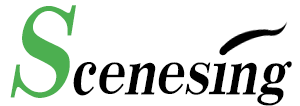
Wikipedia was launched in 2001 and has since grown to become one of the most popular websites in the world, with over 6 million articles in English alone.
The site is available in over 300 languages and covers a wide range of topics, from history and science to pop culture and current events.
Wikipedia’s open-editing policy has led to controversies over accuracy and bias, but the site has implemented various measures to combat these issues, such as strict editorial guidelines and a team of volunteer moderators.
Overall, Wikipedia is a valuable resource for general knowledge and a testament to the power of collaborative online communities.
If you’re an avid internet user, chances are you’ve come across Wikipedia and read a few (or many) articles on the platform. Since its launch in 2001, the free encyclopedia has grown to host over 50 million articles in more than 300 languages as of 2018. In 2020, it continues to be a go-to source of information for over 1.5 billion devices each month. While there are other similar sites, Wikipedia is undoubtedly the most well-known and comprehensive, covering topics ranging from pop culture to scientific research.
One of the unique features of Wikipedia is that anyone can create an account and contribute to the platform, including creating a page about themselves or any other topic. However, it’s important to keep in mind that the information on Wikipedia is not always reliable or accurate, as it is written and edited by volunteers. It’s always a good idea to cross-check information with other sources before citing it as fact.
Overall, Wikipedia is a valuable resource for learning and research, but it’s important to approach it with a critical eye and use it as a starting point for further investigation.
What you should know about Wikipedia
In summary, Wikipedia is an online encyclopedia that relies on the contributions of volunteers worldwide. Its vast network of editors, ranging from experts to enthusiasts, allows for a diverse range of information to be shared and verified. While it may not always be the most reliable source, Wikipedia can serve as a useful starting point for research, providing users with a general understanding of a topic that can be further explored through more credible sources. Ultimately, Wikipedia’s collaborative nature and accessibility make it a valuable resource for anyone seeking information on a wide range of subjects.

Similar to the information it provides, Wikipedia’s funding is sourced from the crowd. As a user-funded initiative, the platform relies solely on donations and grants from its users, with the ultimate goal of providing free knowledge to all.
Wikipedia’s reliability
Although it is comforting to know that Wikipedia and its articles are not funded by corporate interests, it is important to note that personal bias and misinformation can still be present on the site. As anyone with internet access can edit a Wikipedia page, the information presented may not always be reliable and can even be entirely false, as acknowledged by the company. While administrators strive to ensure that facts are properly cited and sourced, it is impossible to catch all inaccuracies. Therefore, using Wikipedia as a credible source of information is generally discouraged in academic and professional settings.

Wikipedia features and tools
However, it’s important to note that while Wikipedia is a valuable resource for general knowledge, it’s not always a reliable source of information. This is because anyone with internet access can change a Wikipedia page, which means that the information on pages isn’t always accurate or unbiased. While administrators do their best to ensure that facts are appropriately cited and sourced, it’s impossible to catch all inaccuracies. As a result, using Wikipedia as a legitimate source of information is generally discouraged in academic and professional settings.

Tech Reference offers a range of informative articles on various tech-related topics. Some of the recent articles include tips on how to add words to the internal dictionary on your Android device and iPhone, a guide to Google’s open-source software project Chromium, and an overview of Flipboard, a social news app. Additionally, readers can learn about Google Scholar, a database designed for students, researchers, and other curious minds.
